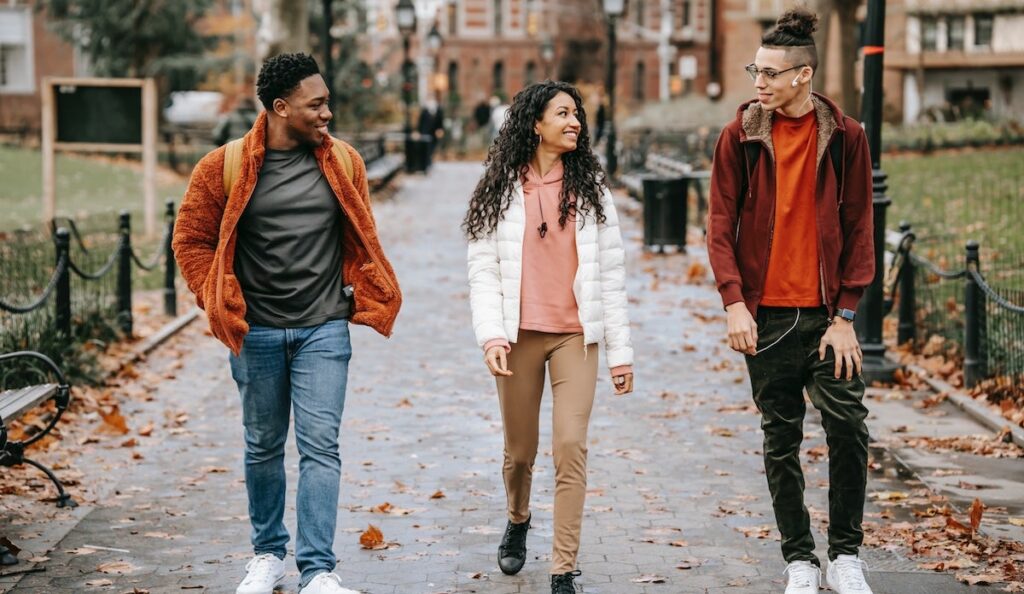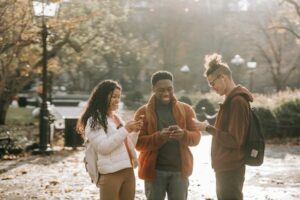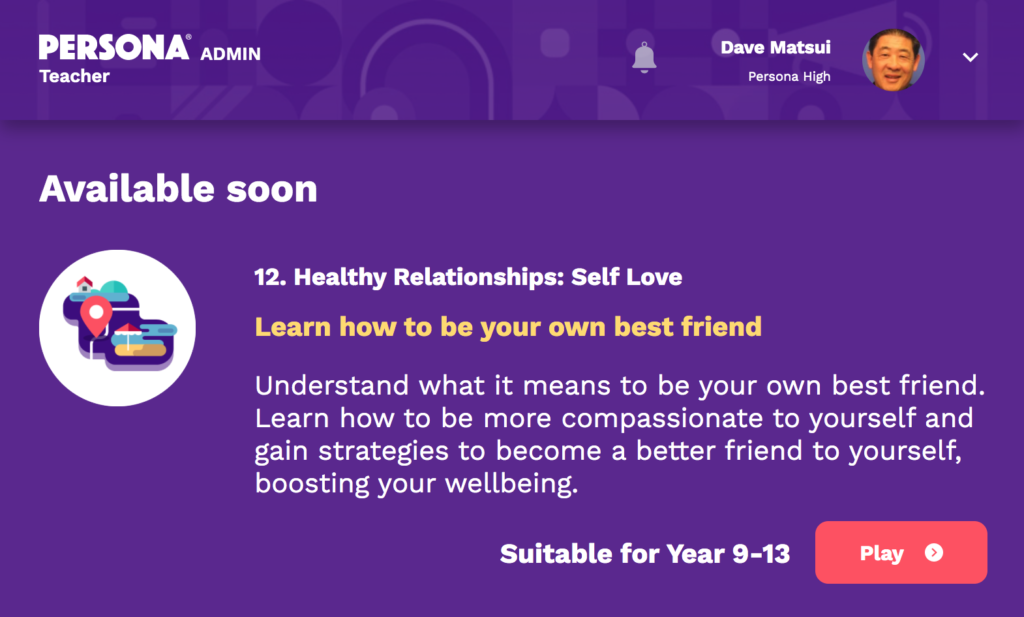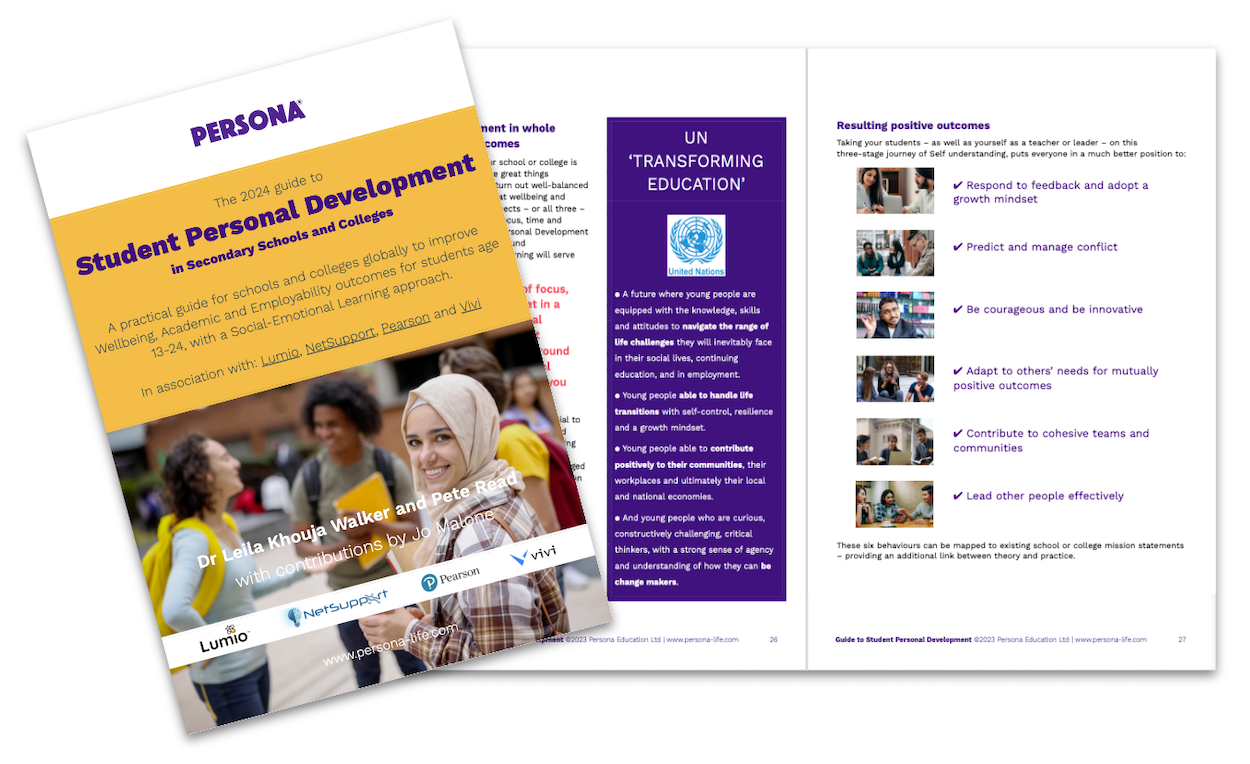Relationships and sex education with a capital “R”

Relationships and sex education should support our young people with the knowledge and life skills for developing relationships that are Respectful, Responsible, Robust, Resilient, Reciprocal and Rewarding.
15-May-21
By Jo Malone, Director of Education
In September 2020 sex and relationships education in the UK was replaced in secondary schools by mandatory Relationships and Sex Education (RSE). To my mind, this was a positive realignment of the wording (“relationships” before “sex” being a good idea). With plenty of emphasis on relationships, not just intimate ones. And from January 2021, inspectors started reporting on schools’ readiness to teach the new curriculum, and their future plans.
All good stuff, and massively needed, especially as we have all had relationships stretched, strained, tested, abandoned, intensified, over the past year. And all rather terrifying for most teachers, especially those who are not specialist PSHE teachers. I know – I led a PSHE department of 14 non-specialists for five years.
Let’s not talk about sex (baby)1 in this blog. There are lots of expert resources already out there that cover this topic (eg. Brook, NSPCC, Terrence Higgins Trust). This is a blog about Relationships with a capital R. It’s a blog about why relationships education should be prioritised, what young people have told us they need, and how we can deliver this in a creative and meaningful way.
Ultimately, supporting our young people with the knowledge and life skills that will stand them in good stead for developing positive relationships. Relationships that are Respectful, Responsible, Robust, Resilient, Reciprocal and Rewarding.
What the grown-ups say
The outcomes in the UK’s Department for Education statutory guidance are wide ranging. Our statutory duty is to equip young people to: talk about their feelings; identify positive and harmful characteristics of relationships; navigate stages of relationships; determine who and what is trustworthy or not; be mindful of our impact on others; develop positive self-regard; nurture respectful relationships; identify emotions and link them to behaviours; and show respect for others, especially those who are different.

That is a long list, but one that is very much welcomed by those invested in meaningful RSE. There has been too much focus on the relatively easy to teach ‘knowledge’ elements of sex ed for so long (label this diagram, how many STDs can you name, list the different ways someone can be controlling, etc.). For me, PSHE and especially RSE has always been about giving young people the knowledge, skills, values and attitudes that enable them to identify and manage risk.
The good news is that at Persona Education we have mapped this against the 22 social-emotional life skills we focus on, and it is a cosy fit. In our Persona Life Skills e-learning platform we already have a comprehensive curriculum which supports the development of most of the Department for Education’s RSE outcomes. Enhancing this, we are adding two more ‘Healthy Relationships’ Island learning modules (we use a metaphor of exploring an Archipelago of Islands for our curriculum) in the next few weeks. And no, we won’t be calling these Love Islands!
What the kids say
Persona consults teenagers all the time as we create and iterate our life skills e-learning content. We value the student voice: listening deeply and acting on what they tell us. In March and April 2021, we consulted young people age 13-19 across England asking them what support they felt they needed in their relationships education (focusing on boy- / girl- / other- friend relationships).

My first worry was around language. Get this wrong and you’ve lost them before you even begin! I wanted to know if teenagers were still ‘asking each other out’? (ans. not so much), do they still get ‘dumped’? (ans. they’re using kinder language such as ‘breaking up’). Do kids in one part of the UK use the same language for relationships as kids in another part of the country? (ans. yes). What exactly does ‘talking’ with someone mean, and how is this different from ‘seeing’ them? (ans. I’m still working this out). We asked them a host of other stuff around relationships too.
My main take-away from the consultation is that there are some incredibly sagacious teens out there. Honestly, some of the responses you’d have thought came from Oprah, not a 17 year-old in Eastleigh or Wigan.
They told us:
- Young people are really concerned about the quality of their relationships
- There’s a 50/50 split on whether or not there are pressures to be in a relationship
- Communication challenges they face in relationships are being honest about emotions, and communicating feelings
- Other common problems include seeing each other’s perspective, and trust
- They believe that adults do not take young people’s relationship concerns seriously enough
The thing they most wished adults would acknowledge is that relationships feel very real and authentic, and that their feelings need to be validated, not brushed aside. Many want adults to allow them the space to make mistakes, to make choices.
One wise teen responded:
“In some ways it is a part of growing up and [adults] should let teens experience relationships so they can learn from them.”
Another said:
“If it all goes wrong it’ll just be a lesson learnt.”
The most fascinating responses were from the older teenagers, regarding what they wish they’d known at 13:
“That you do not need a boyfriend. Value the time you have with friends and family. These things will come naturally later on in life.”
“They [relationships] are not everything, and u need to love yourself first.”
“Relationships aren’t just about holding hands, kissing and saying that you’re with someone. There’s feelings involved and communication is needed.”
So what?
I was surprised to find so many teens indicating that loving yourself is an important first step for any healthy relationship. (This was until my own live-in 16 year-old educated me in Ru Paul soundbites.)

We think ‘self love’ is an eminently sensible starting place, so our first Healthy Relationships Island module focuses on learning how to be your own best friend; cultivating a positive relationship with the self, especially in stressful times. Building on this, our second Healthy Relationships Island will address clear and compassionate communication around dating.
The Persona Life Skills approach is to mix online independent learning with guided in-class (or video call) discussions, guided by the teacher, around real-world life challenges. This affords time and space for personal reflection, alongside facilitated interactions to draw out the learning and to explore similarities and differences within the group. It’s a powerful combination! Students see all of this through the lens of understanding their own unique mix of personality styles, which they are encouraged to link to their own thinking, behaviour and communication.
Get involved
I am so excited to be developing these new islands with the Persona Life Skills team! If you’d like to get involved, get in touch if you would like to:
- Learn about how Persona’s 22 life skills map against the UK RSE and PSHE frameworks
- Know more about the results of our student consultation on relationships and language
- See a demo of the Persona Life Skills approach to teaching and learning PSHE, RSE and SEL
Other blogs on related themes:
My journey to loving myself – Persona Education blog
Relationships and the classroom – Persona Education blog
The New RSE Curriculum – ClickView blog
Personality, relationships and wellbeing – Persona Education blog
Persona Education offers free access to its Persona Life Skills e-learning platform for secondary schools and colleges interested in developing their pupils’ social & emotional life skills, to boost wellbeing and employability.
About the author: Jo Malone is a global education expert, with over two decades experience in teaching, e-learning, dialogic education and teacher training. A social and emotional learning (SEL) and PSHE thought-leader, she is Director of Education at the Bristol based edtech company Persona Education Ltd, providing onboarding, guidance and support for schools and colleges using the Persona Life Skills personality insights life skills e-learning app. www.persona-life.com
1 A reference to Salt-N-Pepa's Blacks’ Magic album (1990), song 10 "Let's Talk About Sex"




